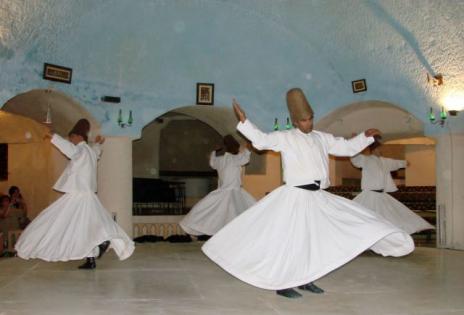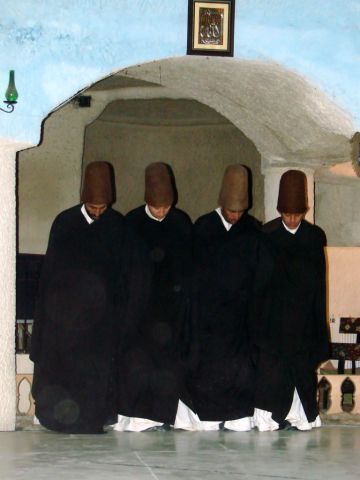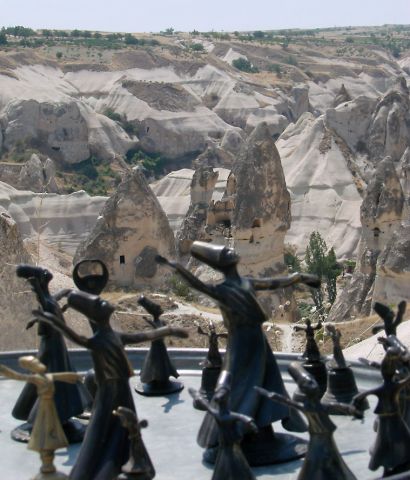Turkey: Whirling Dervishes from Cappadocia
This seven-centuries-old ritual of the Whirling Dervishes is the most exquisite ceremonies of spirituality. It is an act of love and a drama of faith.
The onlookers may feel the mystic athosphere of the performence when the gentle turns of the dancers gradually become dynamic and the dervishes achieve a state of trans, which unifies the three fundamental components of man's nature: mind, emotion, and spirit.
Long time ago dervishes, the members of the Mevlevi Order, named for their founder Mevlana from Konya, lived in coisters and monasteries which had a tomb, a large chamber for the ceremony of the whirling dance. Nowadays tourists travelling to Turkey can still experience the mysticism of the dervishes' ceremony.
Long time ago dervishes, the members of the Mevlevi Order, named for their founder Mevlana from Konya, lived in coisters and monasteries which had a tomb, a large chamber for the ceremony of the whirling dance. Nowadays tourists travelling to Turkey can still experience the mysticism of the dervishes' ceremony.
The Dervishes’ clothing has its special meaning: On dervishes' heads are tall, conical felt hats signifying the tombstones. They wear long, white robes with full skirts which represent the shrouds of their egos. Over those are voluminous black cloaks representing tombs. Dervishes drop them at the beginning of the ceremony of the semÔ – the whirling ritual, to symbolize their deliverance from the cares and attachments of this world.
One by one, having their arms folded on their breasts, they bow to the master of ceremony and then spin out onto the floor. Opening their folded arms, the dervishes hold their right hands palm-up to receive the blessings of heaven and their left hands palm-down to transfer God’s blessings to earth.
Eventually, the semÔ reaches a point where all dervishes are simultaneously whirling. After about 10 minutes all stop and kneel, then rise and begin again.
Eventually, the semÔ reaches a point where all dervishes are simultaneously whirling. After about 10 minutes all stop and kneel, then rise and begin again.
Konya, a Turkish holy city hosts a museum, a shrine containing the tombs of Rumi, his father, his son, and several great leaders of the Mevlevi dervish order.


